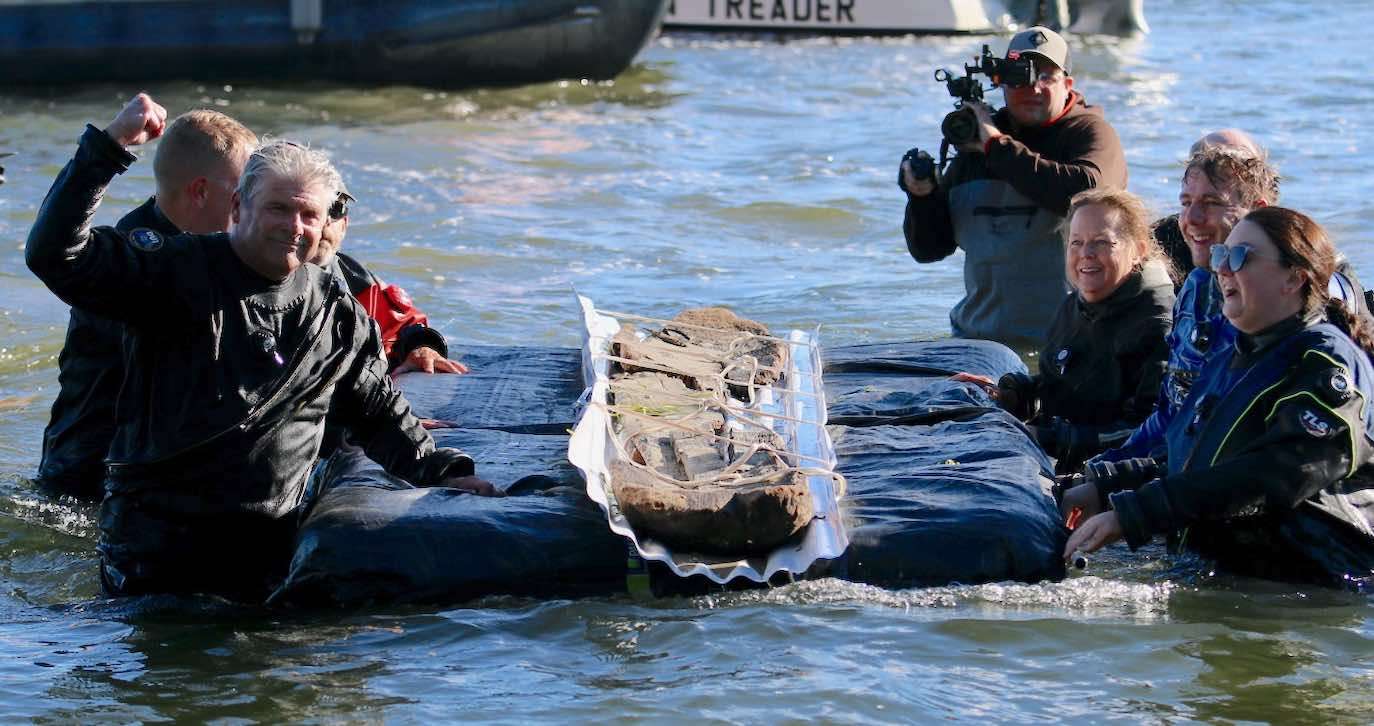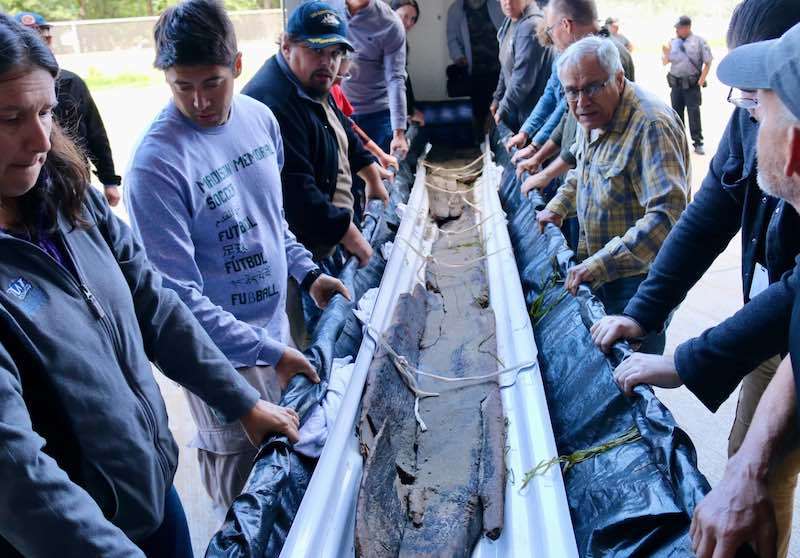Adopted Man Discovers Family After 20 Years When Brother Used His Unusual Name to Track Him Down
It was July 20th however, that he got an Instagram message from a man called Jalen Vickers; he said he was his older brother.

The smiling face in the middle on the right side of the raft in this picture belongs to a woman who has managed to find two ancient Native American canoes in the same lake, within 12 months of each other.
In November of 2021 Tamara Thomsen, a maritime archeologist and member of the Wisconsin Historical Society, discovered a canoe of the bottom of Lake Mendota, near Madison, that was 1,200 years old.
Thomsen probably couldn't believe her luck when during a recreational dive this May, she spied another canoe in the depths of the water.
In September the Wisconsin Historical Society alongside native nations recovered the canoe, and radiocarbon dating places it to 1000 BCE, making it the oldest ever discovered in the Great Lakes region by roughly 1,000 years.
The 3,000-year-old dugout canoe is carved from a single piece of white oak and measures approximately 14.5 feet in length.
As it was found in the same area the first canoe was discovered, it suggests that the location of Lake Mendota's shoreline may have changed over time and could have once been much lower, according to Dr. James Skibo, Wisconsin Historical Society state archeologist.
"Finding an additional historically significant canoe in Lake Mendota is truly incredible and unlocks invaluable research and educational opportunities to explore the technological, cultural, and stylistic changes that occurred in dugout canoe design over 3,000 years," said Skibo.
"Since it was located within 100 yards of where the first canoe was found at the bottom of a drop-off in the lakebed, the find has prompted us to research fluctuating water levels and ancient shorelines to explore the possibility that the canoes were near what is now submerged village sites."
Although it is likely that water transportation dates back to the arrival of Native peoples in this region, this discovery provides the earliest direct evidence, and helps to tell a more complete story of the continuum of Native life in Wisconsin and the Great Lakes region. Members from the Ho-Chunk Nation and Bad River Tribe were present at the canoe recovery.

"The recovery of this canoe built by our ancestors gives further physical proof that Native people have occupied Teejop (Four Lakes) for millennia, that our ancestral lands are here and we had a developed society of transportation, trade and commerce," said Ho-Chunk President Marlon WhiteEagle in a statement.
"Every person that harvested and constructed this caašgegu (white oak) into a canoe put a piece of themselves into it. By preserving this canoe, we are honoring those that came before us."
Wisconsin Governor Tony Evers also commented on the discovery, saying he looked forward to learning more about the pair of canoes.
"This incredible finding provides an opportunity for us to work in concert with Tribal Nations to not only study but celebrate the history of the Indigenous people who've called this land home since long before Wisconsin became a state," he said.
The canoe was hand-excavated in preparation for today's recovery mission and then securely transported to the State Archive Preservation Facility in Madison for preservation and storage.
It will be cleaned and cared for by Tribal members and Society staff before being hand-lowered into a large preservation vat also containing the 1,200-year-old canoe discovered in 2021. Together the canoes will undergo a two-year preservation process that will conclude with freeze-drying to remove any remaining water.
SHARE This Serendipitous Dip In Lake Mendota On Social Media…
Be the first to comment